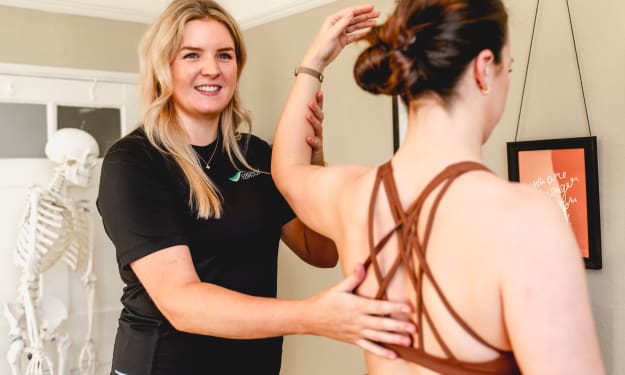
Vaccines have been at the center of controversy for many years. A vaccine is a biological creation designed to prevent the spread of a life-threatening disease, such as polio or smallpox. Over the last couple of decades since their development vaccines have saved millions of lives, and 1.9 trillion dollars in global expenses. August is National Immunization Month. Despite the many negative reports, vaccines are hugely beneficial to our society.
Herd Immunity
Ever since the release of the COVID vaccine, this phrase has taken center stage, but what does it mean? Herd Immunity is when many people are immune to a virus, so much so that they pass the antibodies on to non-immune people in the same way they would the virus. During an outbreak, epidemic, or pandemic, doctors often encourage 80-85% of the affected area to get a vaccine to speed this process up. This would mean that there are more healthy cells than sick ones in the environment, thus stopping the virus from reproducing and traveling. It is medically impossible to get 100% of the population to get a vaccine for whatever the reason may be. Only 10% of the population can not medically receive vaccines because the risk it poses to their health is greater than the actual benefit. Those who cannot get vaccinated rely on those who can so that they can receive the antibodies from them they would have otherwise gotten from the vaccine.
Has A Proven Track Record
Viruses were once the leading cause of death around the world. They have killed more people than all the wars combined. The Bubonic Plague wiped out entire towns. Smallpox caused a disease genocide on the Native American populations in the “New World”. Before the 1700s, the only way to protect yourself from these microscopic killers was to prey, and prey hard. Nobody knew what a virus was back then, let alone know that this is what was killing off their children and neighbors. It wasn’t until Edward Jenner’s discovery in 1796 did we finally turn the tables on the fight against germs. Even then, it was still a painfully slow process to get others onboard with this concept. The next big turning point for vaccines happened in 1855 with Louis Pasteur’s rabies vaccine. As our grasp of Medical Science grew, so did our knowledge of immunizations. Today, the four to six people who catch Bubonic Plague every year survive because we have a vaccine for it, and as of 1984 the biggest disease killer in the world, Smallpox, is extinct because of the vaccination schedule program made up by the CDC.
Can Save You Money
Today, almost all known vaccines are free or at little cost through your health insurance. Without insurance, vaccines may seem expensive, but in the end, they can save you a lot more money than you realize. Let me explain through an example; the flu shot costs on average $70 for an uninsured patient. For now, that seems like a lot of money for how bad our economy is doing right now, so you might tell yourself that it isn’t worth it. Now, because you skipped getting the vaccine you, unfortunately, catch a terrible case of influenza. A five-night stay at an American hospital can cost you about $6,900 for just the room on the low end. Most hospitals run on donations, so they love to nickel and dime insurance companies and patients for everything to make a profit at the end of the quarter to pay salaries. From food to TV usage, to even a band-aid, everything comes at a price that someone will pay for at the end. Now, let’s look at the outside factors you may have missed like lost wages, an ambulance ride, transportation home, if you have children and/or pets, the costs for someone to take care of them, rent, and utilities, just to name a few. Once you break things down cost-wise, that $70 vaccine looks way cheaper now than it did back then.
A Vital Part Of Overall Health
Anybody can get sick at any time. It will most often strike you at the worst possible time. Therefore, it is important to make it a vital part of your healthy lifestyle. Vaccine schedules should be treated the same way you would an exercise plan or a diet program. If unsure what vaccinations you should get, schedule an appointment with your Personal Care Physician (or PCP). They are a treasure trove of information on the subject and can get you set up with the right treatments and determine if a certain vaccine is right for you. Another place to visit if you have vaccine-related questions would be your local pharmacy. Almost all pharmacies have a consultation window set up for you to ask any medicine-base or vaccine-related question. You don’t even need to be a patient of theirs to ask questions, as it is open to the public. Some places, like Rite Aid, have a private room design for such consultations where you can schedule a meeting with the pharmacist to go over anything you may need. They also train pharmacists to administer certain vaccines, and if they have them available, they can perform them on the same day.
For more information on vaccines, visit https://vaccinateyourfamily.org/ for more information.
WARNING: I am not a trained, licensed medical professional. I have carefully researched this article to provide you with the most factual based information I can find to help educate you on the importance of vaccines.
About the Creator
M.L. Lewis
Welcome to my little slice of pie. This blog will primarily focus on prepping and homesteading skills with a sprinkle of fiction every now and then.






Comments
There are no comments for this story
Be the first to respond and start the conversation.